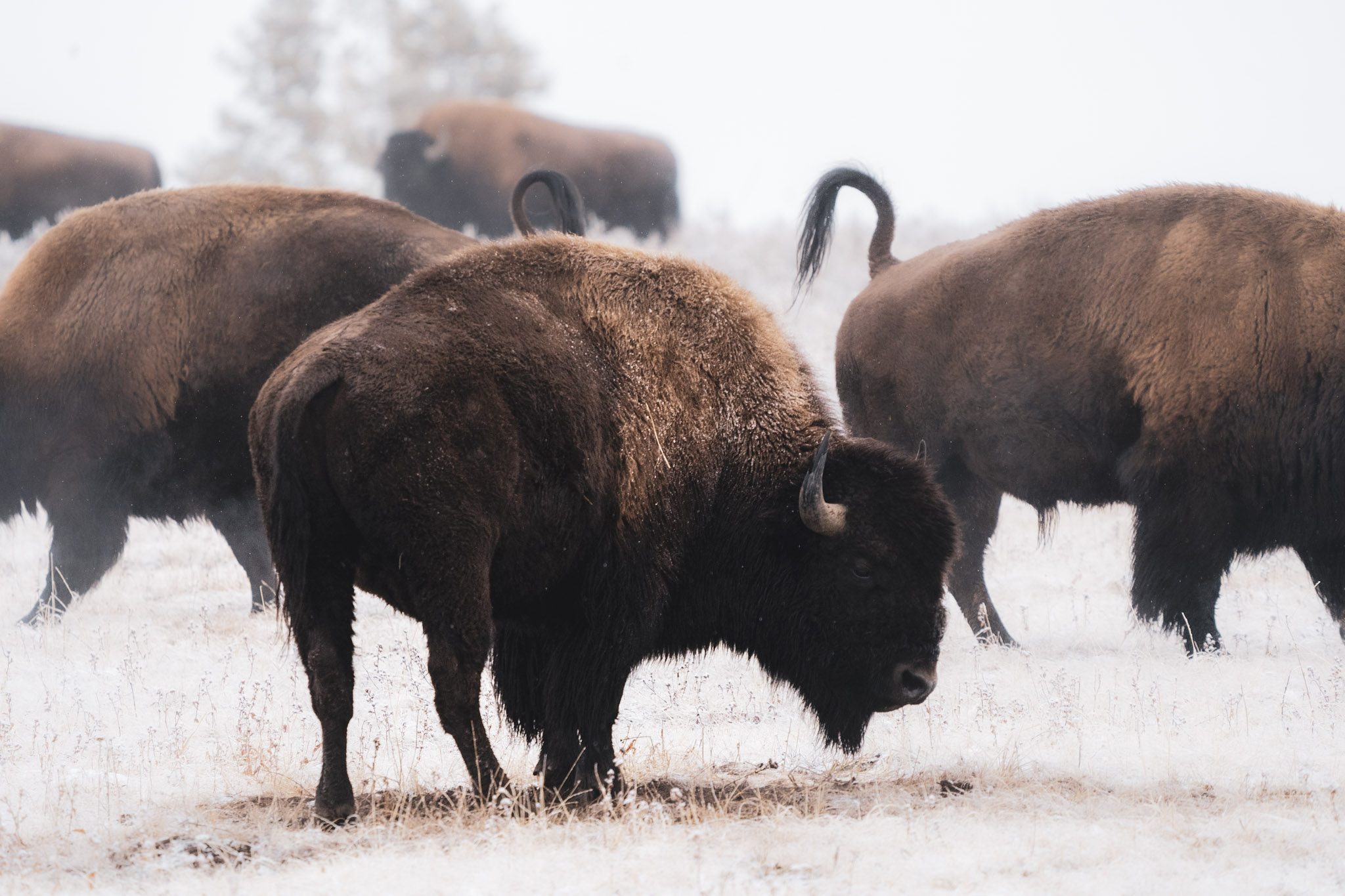
- Details
- By Kaili Berg
Yellowstone Voices, a Montana-based nonprofit dedicated to wildlife conservation and advocacy, will host a public educational event titled “The Future of Yellowstone’s Wild Bison” on Friday, November 1, 2024, at the Museum of the Rockies' Hager Auditorium in Bozeman, Mont.
This free event, beginning at 6:00 p.m., will explore the environmental, cultural, and ecological challenges facing Yellowstone’s last wild buffalo herds.
The event is organized in collaboration with key wildlife advocacy partners, including Roam Free Nation, Gallatin Wildlife Association, and the Montana Wild Bison Restoration Coalition.
Doors open at 5:30 p.m., allowing guests to engage with these organizations during an opening reception, where they can enjoy light refreshments and learn more about the efforts to protect Yellowstone’s bison.
“Yellowstone Voices is building a coalition to preserve, protect, and appreciate the wildlife and environmental resources in and around Yellowstone National Park and to support access to and information about Yellowstone,” Bonnie Lynn, Executive Director of Yellowstone Voices, said in a statement.
The evening features a lineup of speakers, discussions, and interactive opportunities for attendees to understand the threats to the park’s bison population and explore ways to safeguard their future.
The event will begin with a prayer from Jaedin Medicine Elk, a Northern Cheyenne tribal member and co-founder of Roam Free Nation, setting a respectful tone for the evening.
Following the opening, former Yellowstone Senior Bison Biologist Rick Wallen will deliver the keynote address, examining the ecological impacts of expanding bison habitats. His insights will be complemented by additional speakers, including Rochelle Salois, a member of the Confederated Salish and Kootenai Tribes, who will provide a tribal perspective on the issues affecting Yellowstone’s bison.
A video presentation by Roam Free Nation co-founder Stephany Seay will dive into Yellowstone’s controversial bison capture operations, raising questions about the ethical implications of current management practices.
“The general public needs to know the truth about what is happening to the last wild buffalo,” Seay stated in a press release. “Yellowstone is greenwashing its bloody management approach by manipulating their management language as they continue to manipulate the buffalo.”
A panel discussion with wildlife advocates and bison experts will follow the presentations, allowing for audience questions and a community dialogue. This interactive session offers attendees the chance to engage with experts and explore alternative management solutions that prioritize both wildlife protection and environmental stewardship.
More Stories Like This
Trump signs law that revokes some limits on drilling in Alaska’s National Petroleum ReserveSouthern Sierra Miwuk Nation Gets 900-Acres ofLand Back
Chilkat Indian Village Tells New Palmer Mine Owners They Are “Not Welcome” in Chilkat Valley
Tribes, Coastal Group Ask Army Corps to Revoke Permit for Texas Export Terminal
Michigan Tribes Tell Supreme Court: Don’t Bail Out Enbridge
Help us defend tribal sovereignty.
At Native News Online, our mission is rooted in telling the stories that strengthen sovereignty and uplift Indigenous voices — not just at year’s end, but every single day.
Because of your generosity last year, we were able to keep our reporters on the ground in tribal communities, at national gatherings and in the halls of Congress — covering the issues that matter most to Indian Country: sovereignty, culture, education, health and economic opportunity.
That support sustained us through a tough year in 2025. Now, as we look to the year ahead, we need your help right now to ensure warrior journalism remains strong — reporting that defends tribal sovereignty, amplifies Native truth, and holds power accountable.
 The stakes couldn't be higher. Your support keeps Native voices heard, Native stories told and Native sovereignty defended.
The stakes couldn't be higher. Your support keeps Native voices heard, Native stories told and Native sovereignty defended.
Stand with Warrior Journalism today.
Levi Rickert (Potawatomi), Editor & Publisher


